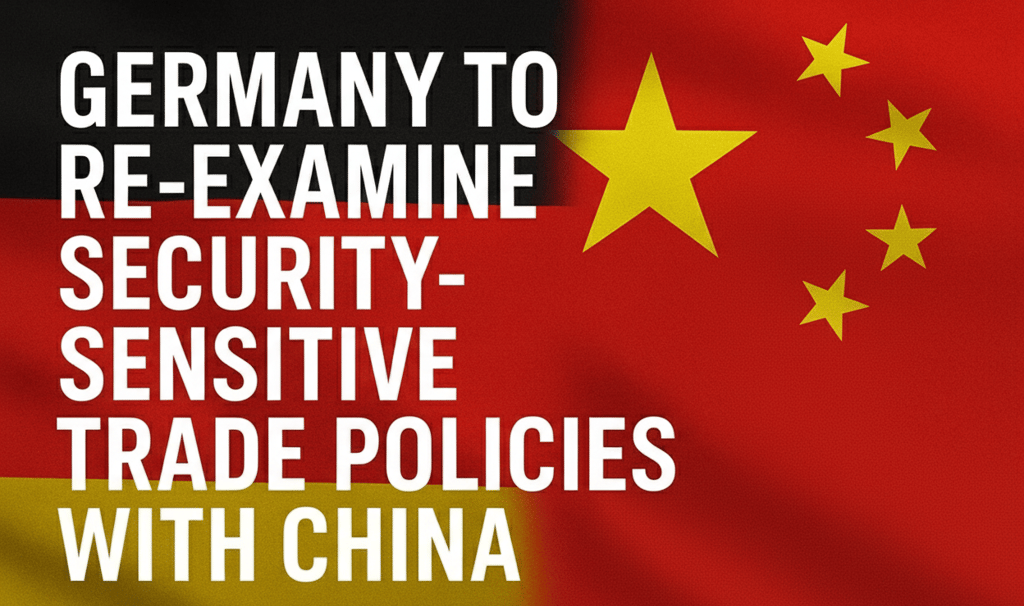Germany to Re-Examine Security-Sensitive China Trade Policies — November 2025
Germany announces a major review of security-sensitive trade with China, forming an expert committee to assess energy, raw materials, and investments.
Raja Awais Ali
11/8/20251 min read


Germany to Re-Examine Security-Sensitive Trade Policies with China
Berlin, November 8, 2025 — The German government has announced plans to re-evaluate its trade policies with China, focusing on sectors considered sensitive to national security, including energy, raw materials, and critical infrastructure, according to Reuters.
An expert committee will be established to review all aspects of Germany-China trade relations and submit a detailed report to parliament every six months. Officials say the move aims to balance economic cooperation with national security interests while strengthening Germany’s resilience and reducing dependency on China for strategic materials.
The committee will include academic experts, industry representatives, and policy analysts, who will assess trade relations from legal, economic, and geopolitical perspectives. Analysts note that the goal is not only to examine trade deficits or export dependence but also to learn from how other European nations are redefining ties with China.
German Chancellor Friedrich Merz stated,
“We need trade relations that serve both our economy and our national security.”
Experts believe the review will have far-reaching consequences for German industries:
Imports of key components and raw materials may face tighter scrutiny to reduce reliance on China.
Chinese investments, particularly in infrastructure and energy, will undergo enhanced security screening.
German exporters, especially in the automotive sector, may adopt more cautious strategies in dealing with Chinese partners.
China remains Germany’s largest trading partner, with bilateral trade totaling roughly €240 billion in 2024, though figures have started to decline amid rising political and security tensions. Germany’s strategy, often called “de-risking”, seeks a gradual reduction of strategic dependencies rather than full economic decoupling.
The move reflects a broader European trend of adapting trade policies to ensure long-term economic stability and national resilience. By reassessing its relationship with China, Germany aims to safeguard supply chains, protect critical infrastructure, and secure its future against potential geopolitical risks.
Key Takeaways
Germany is reviewing security-sensitive trade with China.
An expert committee will report to parliament every six months.
Focus on energy, raw materials, and critical infrastructure sectors.
Analysts see this as a major policy shift toward strategic autonomy.
Stay informed with the latest national and international news.
© 2025. All rights reserved.